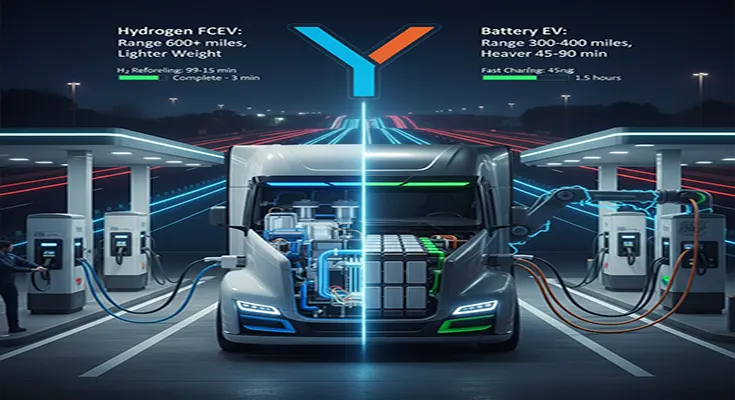The future of long-haul trucking is at a crossroads, with hydrogen fuel cell electric vehicles (FCEVs) and battery electric vehicles (BEVs) vying for dominance in the quest for zero-emission transportation.1 Both technologies offer compelling advantages over traditional diesel engines, but they also face unique challenges when it comes to the demanding world of long-distance freight.
The Case for Battery Electric Vehicles (BEVs)
Battery electric trucks are essentially scaled-up versions of their passenger car counterparts. They store energy in large battery packs that power electric motors, offering instantaneous torque and silent operation.
Pros of BEVs for Long-Haul:
- Established Technology: Battery technology is mature and rapidly improving, benefiting from decades of development in consumer electronics and passenger vehicles.2
- High Efficiency: Electric powertrains are incredibly efficient, converting a large percentage of electrical energy into mechanical energy.3
- Infrastructure Growth: Charging infrastructure is expanding, with more public and private charging stations becoming

